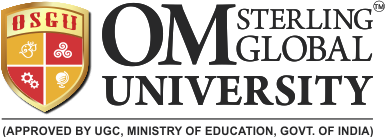The B. Voc in Medical Imaging Technology program plays a pivotal role in preparing healthcare professionals with specialized skills essential for diagnostic imaging. Recognized as a vocational course by institutions like OSGU and integrated with BSc Medical Imaging Technology, this program equips students to contribute significantly to patient care through advanced imaging techniques and comprehensive training.
Overview of B. Voc in Medical Imaging Technology
The B. Voc in Medical Imaging Technology is designed to provide students with a deep understanding of various imaging modalities used in healthcare settings. This vocational course combines theoretical knowledge with practical training, focusing on the operation and interpretation of imaging equipment such as X-ray, MRI, CT scan, ultrasound, and nuclear medicine.
Curriculum and Skill Development
The curriculum covers essential topics in medical imaging technology, including anatomy and physiology relevant to imaging, radiographic positioning, patient care and safety, image production and evaluation, and advanced imaging techniques. Students gain hands-on experience through clinical rotations and simulation labs, preparing them for real-world scenarios.
Vocational Course Recognition
Being recognized as a vocational course by institutions like OSGU ensures that graduates receive industry-relevant training aligned with current healthcare standards. This accreditation validates the program's quality and ensures that students are well-prepared for careers in medical imaging technology.
Integration with BSc Medical Imaging Technology
The integration of B. Voc with BSc Medical Imaging Technology provides students with a comprehensive educational pathway. It allows for in-depth study and specialization within the field, covering both vocational skills and theoretical foundations necessary for advanced practice in medical imaging.
Supporting Healthcare Professionals
Enhancing Diagnostic Accuracy: Graduates of the B. Voc program support healthcare professionals by performing high-quality diagnostic imaging procedures. They contribute to accurate disease detection and treatment planning, playing a crucial role in patient care.
Collaboration with Medical Teams: Medical imaging technologists collaborate closely with radiologists, physicians, and other healthcare professionals to interpret imaging results and provide essential information for clinical decision-making.
Patient Care and Safety: Trained in patient care and safety protocols, graduates prioritize patient well-being during imaging procedures. They ensure that patients are comfortable and positioned correctly for accurate imaging results.
Read More: How Is a Secondary Level Program Different from Primary Education?
Career Opportunities
The B. Voc in Medical Imaging Technology opens doors to various career opportunities in healthcare settings such as hospitals, diagnostic imaging centers, clinics, and research facilities. Graduates can pursue roles as:
Radiologic Technologists: Operating X-ray, CT, MRI, and other imaging equipment.
Ultrasound Technologists: Performing ultrasound scans for diagnostic purposes.
Nuclear Medicine Technologists: Administering radioactive materials for imaging and therapeutic purposes.
MRI Technologists: Specializing in magnetic resonance imaging procedures.
Computed Tomography (CT) Technologists: Conducting CT scans for detailed cross-sectional images.
Advantages of Vocational Training
Practical Skills: Vocational training focuses on hands-on experience and skills development, ensuring that graduates are proficient in operating complex imaging equipment.
Job Readiness: The program prepares students for immediate entry into the workforce upon graduation, with skills directly applicable to healthcare settings.
Continuous Learning: Graduates can pursue further education and specialization in specific imaging modalities or advance to supervisory and managerial roles in medical imaging departments.
OSGU Accreditation and Quality Assurance
Accreditation by OSGU ensures that the B. Voc in Medical Imaging Technology meets rigorous educational standards and prepares students for professional practice. It signifies adherence to quality assurance measures that uphold educational excellence and student success.

